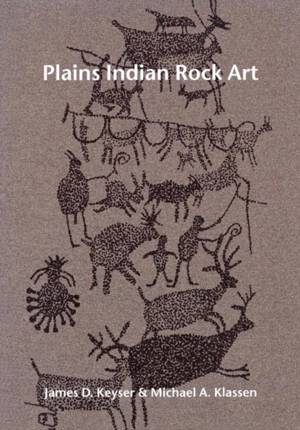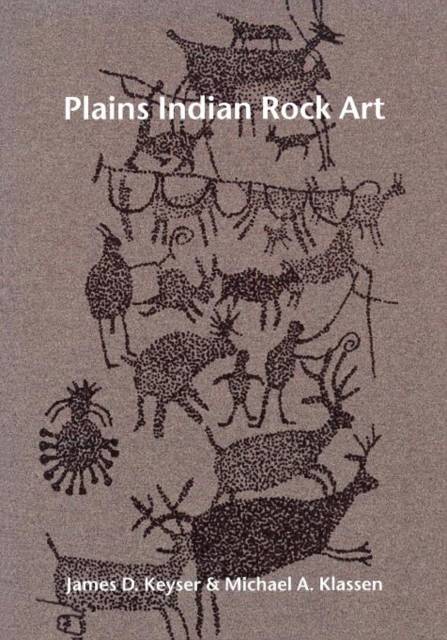
- Afhalen na 1 uur in een winkel met voorraad
- Gratis thuislevering in België vanaf € 30
- Ruim aanbod met 7 miljoen producten
- Afhalen na 1 uur in een winkel met voorraad
- Gratis thuislevering in België vanaf € 30
- Ruim aanbod met 7 miljoen producten
Omschrijving
The Plains region that stretches from northern Colorado to southern Alberta and from the Rockies to the western Dakotas is the land of the Cheyenne and the Blackfeet, the Crow and the Sioux. Its rolling grasslands and river valleys have nurtured human cultures for thousands of years. On cave walls, glacial boulders, and riverside cliffs, native people recorded their ceremonies, vision quests, battles, and daily activities in the petroglyphs and pictographs they incised, pecked, or painted onto the stone surfaces.
In this vast landscape, some rock art sites were clearly intended for communal use; others just as clearly mark the occurrence of a private spiritual encounter. Elders often used rock art, such as complex depictions of hunting, to teach traditional knowledge and skills to the young. Other sites document the medicine powers and brave deeds of famous warriors. Some Plains rock art goes back more than 5,000 years; some forms were made continuously over many centuries.
Archaeologists James Keyser and Michael Klassen show us the origins, diversity, and beauty of Plains rock art. The seemingly endless variety of images include humans, animals of all kinds, weapons, masks, mazes, handprints, finger lines, geometric and abstract forms, tally marks, hoofprints, and the wavy lines and starbursts that humans universally associate with trancelike states. Plains Indian Rock Art is the ultimate guide to the art form. It covers the natural and archaeological history of the northwestern Plains; explains rock art forms, techniques, styles, terminology, and dating; and offers interpretations of images and compositions.
Specificaties
Betrokkenen
- Auteur(s):
- Uitgeverij:
Inhoud
- Aantal bladzijden:
- 344
- Taal:
- Engels
- Reeks:
Eigenschappen
- Productcode (EAN):
- 9780295980942
- Verschijningsdatum:
- 1/08/2001
- Uitvoering:
- Paperback
- Formaat:
- Trade paperback (VS)
- Afmetingen:
- 175 mm x 251 mm
- Gewicht:
- 589 g

Alleen bij Standaard Boekhandel
Beoordelingen
We publiceren alleen reviews die voldoen aan de voorwaarden voor reviews. Bekijk onze voorwaarden voor reviews.











